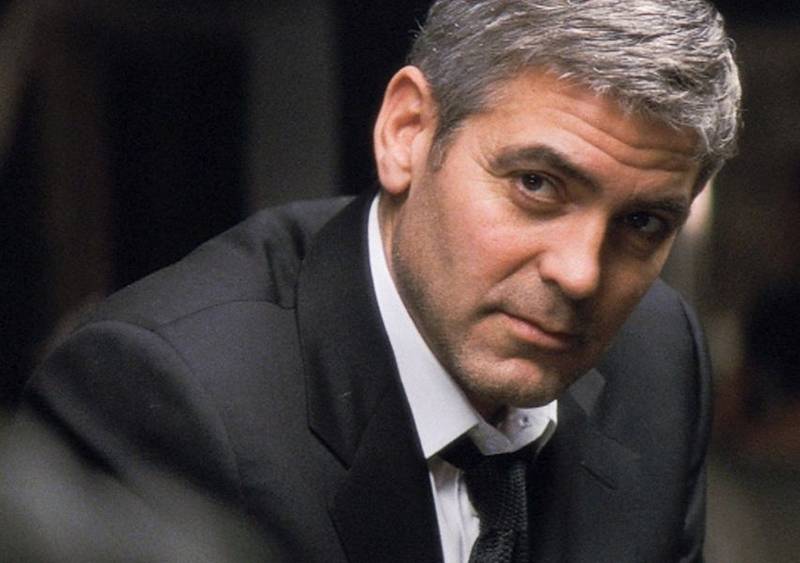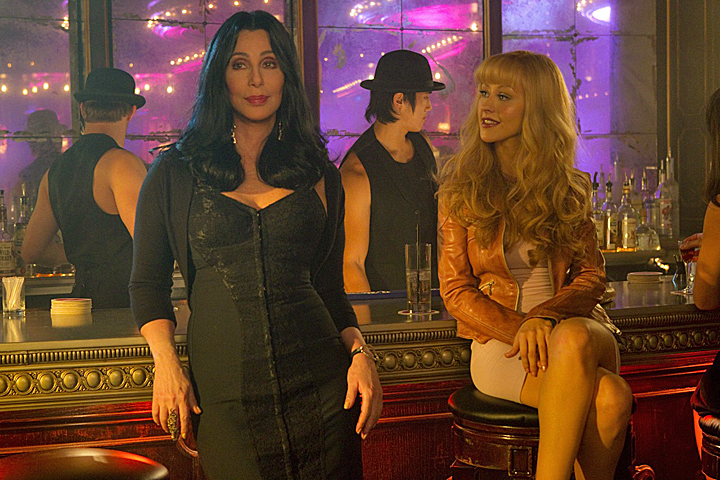Q: In response to the Answer Man item about the significance of the horses in the field of “Michael Clayton,” the reason Clayton stopped at the horses and the tree was because this was a significant image in the red book his son had given him to read — the book he couldn’t find time for. The image of the tree and the horses gave Clayton reason to pause and ponder his son and his life, which ultimately saved him, since it removed him from the vehicle.
L. Brookes, Kamloops, British Columbia
A. Your answer was one of 38 I received! Dondi DeMarco of New York City wrote: “That book was about a post-apocalyptic world in which every man is not merely on his own, but is in fact unable to tell who are his allies and who are his enemies. At the same time, it’s a fantasy world that is far more colorful and life-filled than the world of gray pragmatism in which Michael has found himself for so long.”
Q. Though I loved the film “Michael Clayton,” I was terribly disappointed with the audience I saw it with. As George Clooney is riding in the cab at the end, the closing credits start to appear. A good portion of the audience saw this as their cue to gather their belongings, start talking, and exit the theater. I don’t understand this. Clooney’s character is still on the screen and this means the film isn’t over. I’m trying to stay with the film while people are walking in front of the screen and making noise. What do you make of audiences that have watched a two-hour film, only to walk out before it’s actually over?
Michael Auritt, Rochester, N.Y.
A. I hate it even when people block the credits. And sometimes you miss a credit cookie. For example, the absolutely last image on the screen in “The Assassination of Jesse James by the Coward Robert Ford” is a homage to the final shot in “The Great Train Robbery” (1903).
Q. In your review of “Grindhouse,” you wrote about an “inexplicable” shot in “Beyond the Valley of the Dolls” of a boot crushing an egg. You WROTE that movie! You were there when Meyer filmed it. How can you call any shot in it “inexplicable”?
Carl Fink, Glenwood Landing, N.Y.
A. The entire montage of the Carrie Nations’ journey to L.A. was filmed by Russ all by himself with his trusty camera. Oil pumps, street signs, all of it. Then assembled by the editor. By the way, that was recognizably his boot crushing the egg. I imagine him setting up the shot and then walking in front of the camera to step on the egg. Talk about an auteur.
Q. Your review mentioned that you were expecting reader mail about the house used as a shooting location in “Dan in Real Life.” Here’s some info for you.
Morgan Harris, Chicago
A. I found by tracing your lead that the magnificent house on the seaside is indeed real. It is named Riven Rock and is a beach house on Narragansett Bay in Jamestown, R.I., across the bridge from Newport.
Q. Did the version of “The Darjeeling Limited” you reviewed have the short subject “Hotel Chevalier” prologue attached to it? I understand that the “Hotel Chevalier” section was attached to the film on the festival circuit, removed for the limited release, and restored to the print for the wider theatrical release. I was wondering if you’d seen it and what you thought about it.
Chris Upchurch, Salt Lake City
A. I saw the film at the Toronto Film Festival, where it was preceded by the 13-minute short “Hotel Chevalier,” featuring Jason Schwartzman and Natalie Portman in a Paris hotel. What happens between them goes some way toward explaining his character’s malaise during the Indian journey he takes with his brothers.
The director, Wes Anderson, does an interesting thing here: Instead of trying to work the material into the film, where there is no place for it, or dismissing it as a “deleted scene,” he makes a brilliant short film that helps set up some of the feelings that will be expressed later. He also shows that a gifted director can make a film interesting when ostensibly nothing is happening except a character moving around in a hotel room. If you get a chance, check out the opening of Jean-Pierre Melville’s “Le Samourai” (included in my Great Movies Collection) to watch how Melville achieves a similar fascination with Alain Delon.
By the way, “Hotel Chevalier” has been added to all theatrical screenings of “Darjeeling” as of now, and is available as a free download from iTunes.
Q. In your AM item about “30 Days of Night,” you suggest locating Barrow, Alaska, on a Google map, and “just for fun ask for driving instructions from Barrow to anywhere.” Google tells me it can’t give me driving directions from Barrow to anywhere. Is that the joke?
Scott Collette, Los Angeles
A. That’s the joke.
Q. I was reviewing your 10 best lists since 1967 and noticed an anomaly. From 1967 through 1982, foreign films by great directors like Bergman, Fellini and Bunuel dominated your 10 best lists. After 1982, and especially after 1990, they do not appear as much. Was this a conscious decision on your part? Were you encouraged to steer away from championing foreign films? I can picture some ignorant TV producer arguing with you and Gene about concentrating more on American films.
Adam Ciavarella, Schaumburg
A. Nobody gives me orders about which films to review. If Bergman Fellini, Bunuel, Truffaut and Kurosawa were making films today, they’d be on my lists. In recent years, I have listed such foreign films as “City of God,” “Moolaade,” “Y Tu Mama Tambien,” “Spirited Away,” “Crouching Tiger, Hidden Dragon,” “Princess Mononoke,” “Life is Beautiful” and “Maborosi.” But you are right that the percentage is down.
Q. In your review of “Lake of Fire,” you assert that the death penalty is a practice “which pro-life advocates generally support.” On the contrary, the pro-life position champions a respect for all human life, and thus opposes the death penalty, embryonic stem cell research and euthanasia, in addition to abortion. While many who oppose abortion endorse the death penalty, those people would most accurately and most neutrally be described as “anti-abortion.” Their views on many issues disqualify them from justly representing the pro-life cause, regardless of how they label themselves.
Evan Jones, Evansville
A. A perfectly logical point.
Q. I’m happy that atthemoviestv.com is featuring archived reviews from Siskel & Ebert & Roeper from 1985 to the present. By any chance will that include the tribute show to Gene that you did in 1999?
Kyle Bright, Joliet
A. Yes, according to the site’s Web master, my tribute to Gene was posted this week. It originally aired on Feb. 22, 1999.
Q. I assume you saw this, but if not … Tom Luddy, San Francisco
A. Thank you a million times (no, make that 999,999 times) for sending me what has been described by Peter Bradshaw of the Guardian as the greatest YouTube clip of all time. It is at: www.youtube.com/watch?v=FExqG6LdWHU .
Q. I was pleased to be in the same room with one of my cinematic heroes when Werner Herzog came to Philadelphia to screen his documentary “Encounters at the End of the World,” as well as speak about his “ecstatic truth” ideas and whatever else happened to drift across his fertile mind. I was also thrilled to see he’d dedicated “Encounters” to you. I hope that, while it might provide a conflict of interest as far as reviewing the movie, it won’t keep you from another Herzog essay.
George Allen, Springfield, Pa.
A. It is an honor beyond calculation. I wondered at the time if it would be a conflict to review the film, and told Werner I had decided to write him an open letter. It will appear Sunday, Nov. 18.












